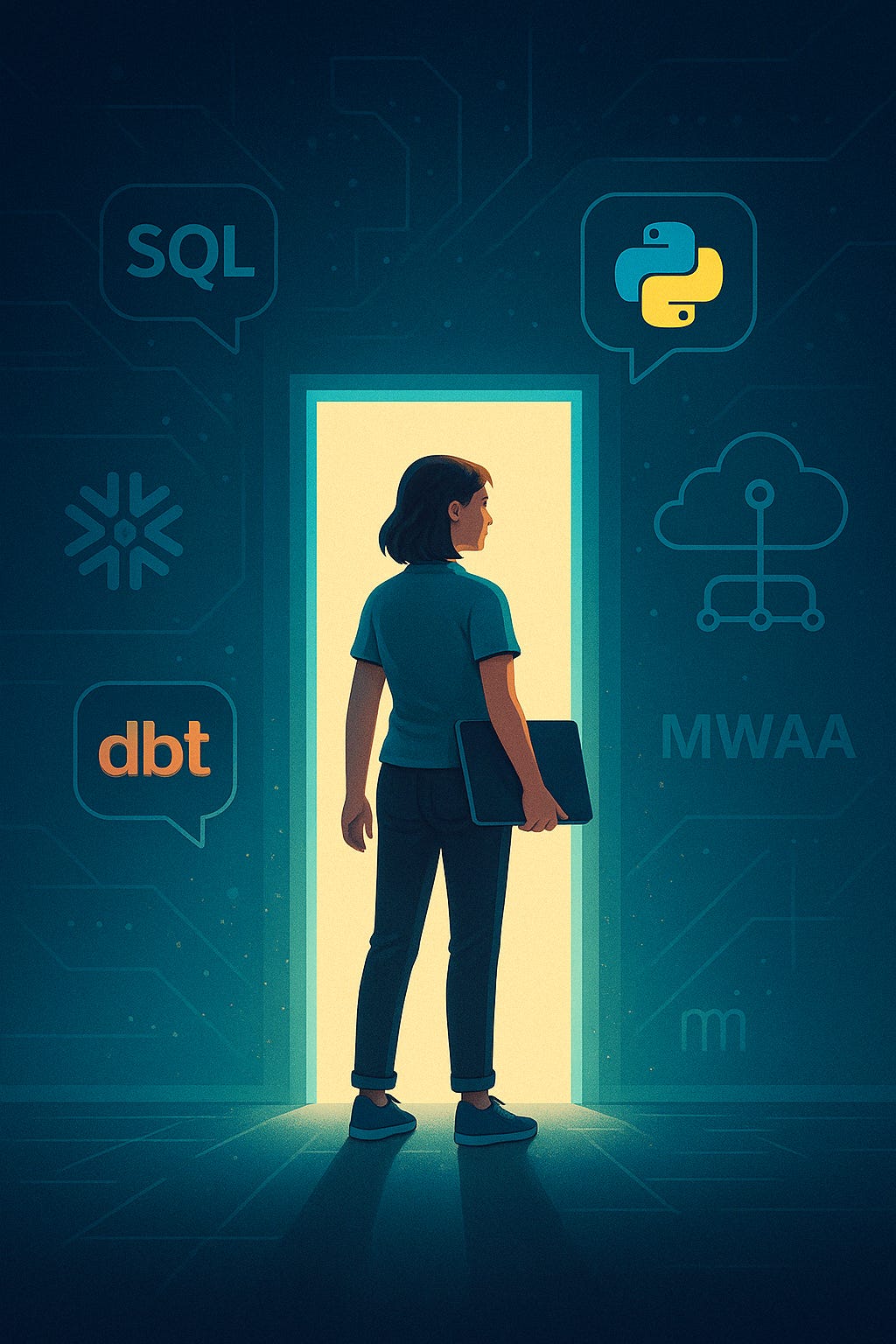The Beginner’s Playbook for a Career in Data
The hardest part isn’t learning data. It’s knowing where to start without drowning in it
I. The Myth of the Perfect Starting Point
When people ask me how to start a career in data, I know what they’re really asking.
They’re not looking for a roadmap. They’re looking for permission.
Permission to start messy. Permission to not know everything. Permission to learn in public without feeling like a fraud.
I get it. I’ve been there.
Eyes wide, twenty browser tabs open, one foot in a Udemy course and the other in a YouTube tutorial about Docker. It felt like everyone else was fluent in Spark, Kubernetes, and five flavors of SQL.
Meanwhile, I was still Googling “what is a data pipeline.”
Here’s the truth: everyone starts like that. The people you admire now once had no idea what a left join did. They just stuck around long enough to stop panicking every time someone mentioned “partitioning.”
II. If I Had to Start Again (From Scratch)
Let’s pretend I lost all my experience. No resume, no network, no projects. Just curiosity, Wi-Fi, and a bit of time.
First, I wouldn’t try to master everything at once. That was one of my earliest mistakes, and it left me more anxious than informed. Instead, I’d keep things simple and aim to solve real problems. That means learning just enough SQL and Python to do useful things. Not to impress recruiters or ace quizzes, but to answer questions with data and automate the boring stuff.
I’d avoid building another dashboard about Netflix movies. I might help a friend’s side hustle clean up their client list, or organize data for a local non-profit. Even cleaning up a messy spreadsheet teaches you more than you’d think. There’s something magical about building for someone who actually needs it.
And as I worked, I’d document everything. I’d post the wins, the errors, the ugly in-between bits. Not because I’m a content creator, but because when you share your learning out loud, you create accountability and attract people who want to help or hire you.
I’d resist the urge to hop from tool to tool. There’s always another library, another framework, another “must-learn” concept. The people who grow fastest tend to be the ones who go deep enough on one thing to build something functional. Confidence follows consistency, not complexity.
III. Analyst, Engineer, Scientist: Pick the One That Feels Like You
One of the first decisions you’ll face is what kind of data role to pursue. The titles sound interchangeable, but the day-to-day work is wildly different.
If you love finding patterns, answering questions, and making charts that tell a story, you’ll likely enjoy being a data analyst. It’s less about engineering and more about curiosity and communication.
If you get excited by systems, pipelines, and making things run reliably behind the scenes, data engineering might be your lane. It’s about building and maintaining the infrastructure that moves data from place to place.
And if you’re drawn to modeling, stats, and testing ideas with real-world data, data science could be a fit. But it’s not all machine learning and magic. It’s often slow, iterative, and messy.
You don’t need to choose forever. Just start where your strengths are and follow the problems that keep your brain buzzing.
IV. You’re Not Behind
It’s easy to look around and feel like you’re already late. Like the doors have closed and everyone else got a head start.
But the truth is, most people are winging it more than they admit. Everyone’s highlight reel hides a lot of fumbling behind the scenes. Even now, I find myself Googling things I’ve supposedly known for years.
You’re not behind. You’re just early.
And if you keep showing up, keep building, and stay curious, that early start will turn into real momentum.
Let’s Keep the Conversation Going
If you’re breaking into data, I’d love to hear what you’re working on. What’s confusing? What’s exciting? What’s stopping you from taking the next step?
Hit reply or leave a comment. And if this helped, send it to someone else navigating the same fog.
This space is big enough for all of us. You don’t have to figure it out alone.


Thanks Adriano, very inspiring and great mentoring vibes.